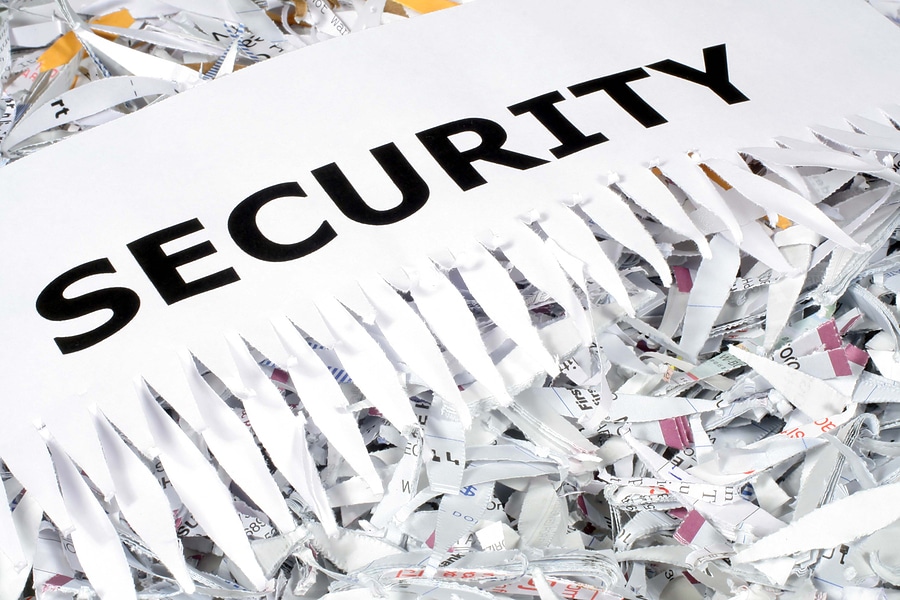Why Office Shredders aren’t Safe Enough

With so many ways for criminals to get their hands on data these days, companies have to be more diligent than ever about protecting the confidential data consumers entrust to them. This not only means securing data in digital and hard copy format while it’s in use, but also during the destruction process.
Throwing documents in the trash is not an acceptable form of disposal and it does not comply with consumer privacy laws designed to protect sensitive customer data. You really need to shred documents in order to meet legal obligations and protect your South Dakota company and your customers.
Unfortunately, your average office shredder probably isn’t up to the task. Not only does commercial shredding equipment often fail to meet standards for suitable shredding, but you have to contend with risks related to allowing your workforce to manage the shredding process. Here are several reasons why you should reconsider in-office shredding, before it’s too late.
Inferior Shredding Equipment
The first problem with in-house shredding is the equipment. Most companies aren’t going to spring for pricy industrial shredders, but choosing commercial equipment could be problematic.
Consumer privacy laws and industrial standards laid out in HIPAA, FACTA, GLBA, and so on specify that you much use a cross-cut shredder, so any equipment that shreds in lines won’t meet criteria. Then there are stipulations about the size of shreds. If you don’t shred documents small enough, you not only fail to comply with laws, but you risk allowing thieves to reconstitute data using sophisticated scanners and software.
The Problem with Employee Discretion
The next issue you have to contend with when it comes to shredding in-house is the fact that you’re relying on your workforce to manage this essential task. This opens the door to mistakes if employees aren’t completely clear on what must be shredded and what can go in the trash.
While this problem could be addressed with a shred-all policy, you may have additional concerns if documents are left sitting on desks or in open shredding bins before they’re destroyed. Leaving documents out in the open means anyone can obtain the sensitive data they contain, including people who wouldn’t otherwise have access.
Plus, you have to consider where the shredded documents are going. Likely, you’ll either toss them in trash or recycle bins, which makes them a target for external theft.
The Benefits of Mobile Shredding
You might think you’re saving money by shredding in-house, but when you start to account for the cost of purchasing and maintaining equipment, along with the expense of wasting valuable employee time on this menial task, you might feel differently. That’s not even accounting for the costs you’ll face if your data is compromised because of inferior shredding equipment or employee error, and you end up with a data breach, identity theft, and everything that follows.
A reliable mobile shredding service solves all of your problems with locking bins for your office, regular visits for shredding on-site, industrial equipment that meets the highest legal standards, and transportation of paper remains to a secure facility for recycling.
If you’re ready to partner with a certified vendor for document shredding, contact the experts at SEAM today at 605-274-7326 (SEAM) or online to request a quote.
SEAM provides IT recycling and data destruction services including onsite shredding and hard drive wiping to South Dakota, North Dakota, Minnesota, Iowa, and Nebraska.
Schedule a pickup or contact us for more information.





